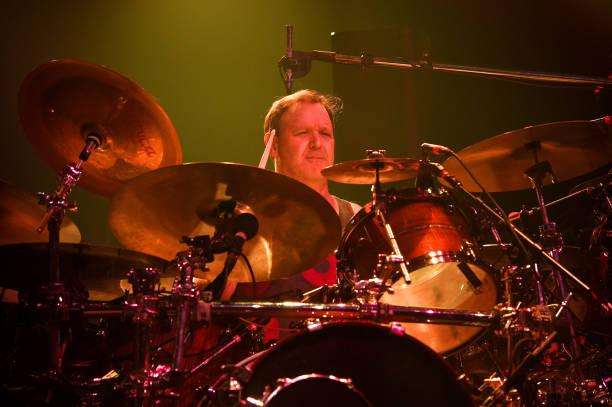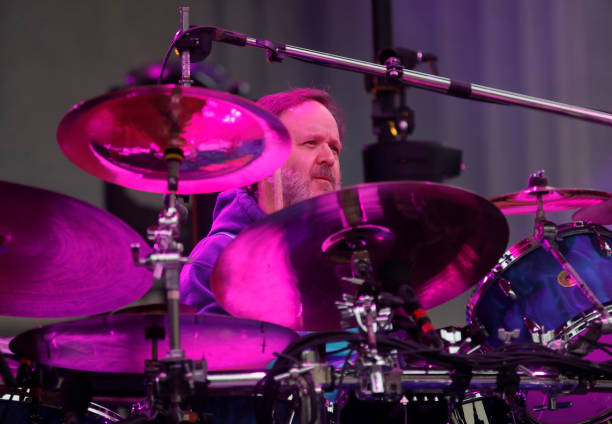Music has always been a realm of unexpected collaborations, where seemingly disparate worlds collide to create something entirely new. Yet, few could have anticipated a meeting of minds between Jon Fishman, the percussive mastermind behind Phish’s sprawling, improvisational soundscapes, and Cattle Decapitation, the relentless force of death grind that channels rage into sonic obliteration. And yet, in a twist that seems almost cosmic in its irony, Fishman lends his voice—calm, deliberate, and eerily prophetic—to narrate moments on Cattle Decapitation’s latest album.

For decades, Jon Fishman has been synonymous with Phish’s boundless musical curiosity, his drumming an intricate web of rhythm that stretches across genres with effortless fluidity. His presence in the world of metal, however, is as unexpected as it is intriguing. Cattle Decapitation, a band known for their apocalyptic themes and unrelenting intensity, has long-crafted music that serves as both a brutal assault and an urgent warning—sonic lamentations on the state of the world. The band’s ability to balance grotesque extremity with unsettling beauty makes them stand apart, and with Fishman’s narration, they’ve added a layer of surreal contrast that deepens their vision.
There is an almost poetic duality at play. Phish, for all its musical adventurism, is often associated with euphoria—lengthy jams that weave between joy, wonder, and technical brilliance. Cattle Decapitation, by contrast, wields chaos and despair as its weapons, their music a dystopian dirge that screams into the abyss. And yet, in both cases, there exists a desire to push boundaries, to transcend expectations, to explore where others fear to tread. Perhaps it is this shared artistic fearlessness that made Fishman’s involvement feel, in some unspoken way, inevitable.
His narration, delivered with a sense of weight and gravitas, acts as a chilling counterpoint to the band’s ferocity. Words spoken by a voice so often associated with cosmic, freeform exploration now serve as markers on a journey through destruction and reckoning. It reminds us that art, no matter its form, is a conversation—between styles, perspectives, what is expected, and what is possible.
For fans of Cattle Decapitation, this collaboration only reinforces the band’s unpredictable evolution and ability to surprise without losing the core of their sound. For those familiar with Phish, it offers a moment of dissonance that forces reconsideration—perhaps an acknowledgement that musical boundaries are and always have been illusions.
In the end, Jon Fishman’s presence on Cattle Decapitation’s album is more than just an intriguing footnote. It is a testament to music’s ability to bridge worlds, to take the unexpected and make it feel, somehow, perfectly in place. It is a reminder that even in the most extreme sonic landscapes, there is always room for another voice—especially one that dares to step beyond its expected terrain.
